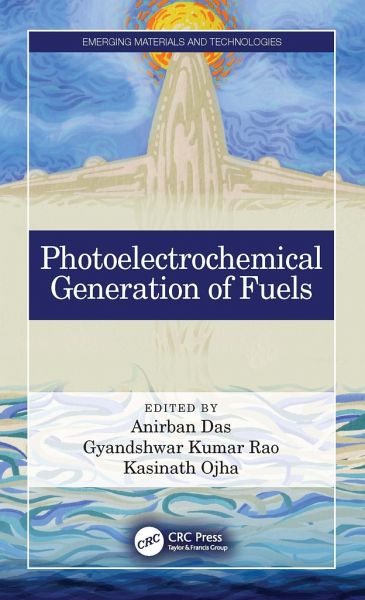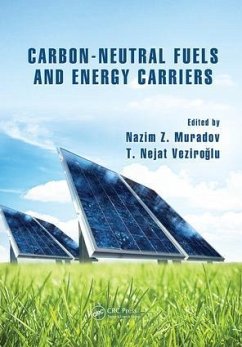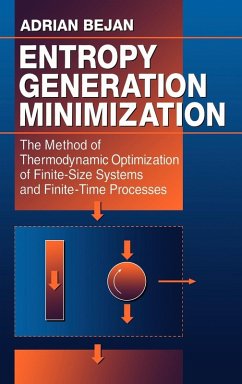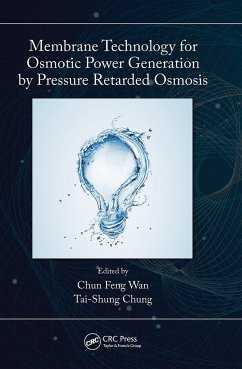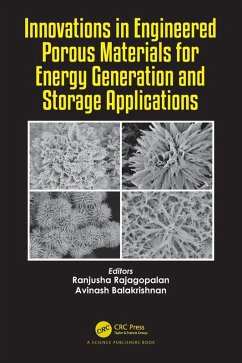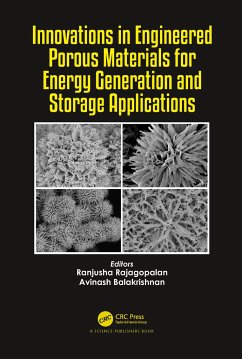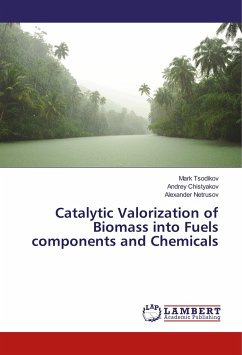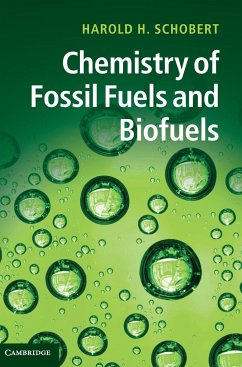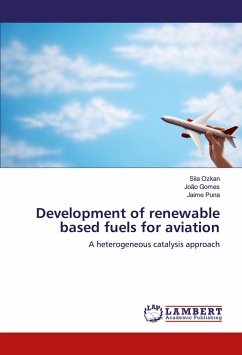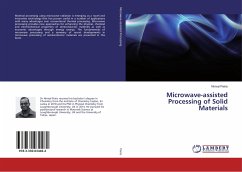Gebundenes Buch
Photoelectrochemical Generation of Fuels
Versandkostenfrei!
Versandfertig in 1-2 Wochen
Weitere Ausgaben:

PAYBACK Punkte
66 °P sammeln!




Photoelectrochemical processes due to the symbiosis of photochemical and electrochemical processes result in unique reaction pathways and products. This technique Catalyzed by nanomaterials is extensively used to harness sunlight for production of fuels and chemical feedstocks.
Dr. Anirban Das is an Associate Professor in the Amity School of Applied Sciences at Amity University Haryana, India. His interests are in in catalysis including chemical and photo(electro) catalysis, organometallics, kinetics and nanotechnology. He obtained a BSc (Chemistry Honours) degree from Delhi University, India, an MS (Chemistry) from the University of Toledo, Ohio (Prof. Mark Mason, 2007) and a PhD (Inorganic Chemistry) from the University of Idaho (Prof. Chien Wai, 2012). Thereafer, he held postdoctoral positions at Northwestern University (Prof. Eric Weitz, 2012-2014), University of California (Prof. Francisco Zaera, 2014-2015) and at the Wayne State University (Prof. Eranda Nikolla 2015-2017). Thereafter he was a CSIR Pool Scientist at IIT Delhi, India before joining Amity University. He has 17 publications in reputed journals. He is a member of the American Chemical Society and the Royal Society of Chemistry. Gyandshwar Kumar Rao, a native of Deoria, Uttar Pradesh, India, completed his Ph.D from IIT Delhi thereafter worked at the University of Ottawa as a postdoctoral fellow from 2014-2017. He is currently working as an Assistant Professor of Chemistry at the Department of Chemistry, Amity School of Applied Sciences, Amity University Haryana. His research interest includes the design and synthesis of inorganic, and organometallic species as well as nanomaterials for energy applications and medicine. He is co-author of forty-one research articles published in international journals of high repute, three book chapters and one patent. His H and i-10 index are 19 and 26 respectively. Dr. Kasinath Ojha obtained his BSc degree in Chemistry (Hons) from the University of Calcutta, in 2008 and his master's degree from IIT Delhi in 2010. He then received his PhD in 2016 from IIT Delhi. During his doctoral research, he focused on nanomaterials and electrocatalysis for green hydrogen production. After finishing his PhD, He joined Technion-Israel institute of Technology, Israel during 2017-2018 as a GTEP-outstanding Post-doctoral fellow at the Eisenberg lab for Electrochemistry and Energy at Schulich Faculty of Chemistry, where he developed Fe, Mo based carbides for Hydrazine oxidation. Then he moved to the Netherlands in December 2018 as postdoc fellow to do research on fundamental electrochemistry at Leiden University. There, he is currently looking at the atomistic level understanding of the electrode-electrolyte interface. Recently, he has been awarded with prestigious DST-Inspire faculty Award (DST, India). Before, he was awarded with many other important awards like MSCA seal of Excellence (European commission), PBC fellowship (Israel), GTEP fellowship (Technion, Israel), International Travel Award (SERB, India), Best Poster award (5th Bangalore Nano conference, India), Best Master thesis award (IIT Delhi, India) etc. Dr. Ojha's research activities result one patent (PCT) and more than twenty-five papers in highly acclaimed peer-refereed journals. His main research interest is on materials and fundamental electrochemistry to develop durable electrocatalysts and to understand the electrode-electrolyte interface in aqueous medium. He is also interested in the development of advanced electrolysers (particularly for green hydrogen), fuel cells and other catalytic devices beyond lab scale research for alternative fuel /energy generations.
Produktdetails
- Verlag: CRC Press
- Seitenzahl: 222
- Erscheinungstermin: 31. Oktober 2022
- Englisch
- Abmessung: 240mm x 161mm x 17mm
- Gewicht: 502g
- ISBN-13: 9781032078403
- ISBN-10: 1032078405
- Artikelnr.: 64359715
Herstellerkennzeichnung
Libri GmbH
Europaallee 1
36244 Bad Hersfeld
gpsr@libri.de
Für dieses Produkt wurde noch keine Bewertung abgegeben. Wir würden uns sehr freuen, wenn du die erste Bewertung schreibst!
Eine Bewertung schreiben
Eine Bewertung schreiben
Andere Kunden interessierten sich für



